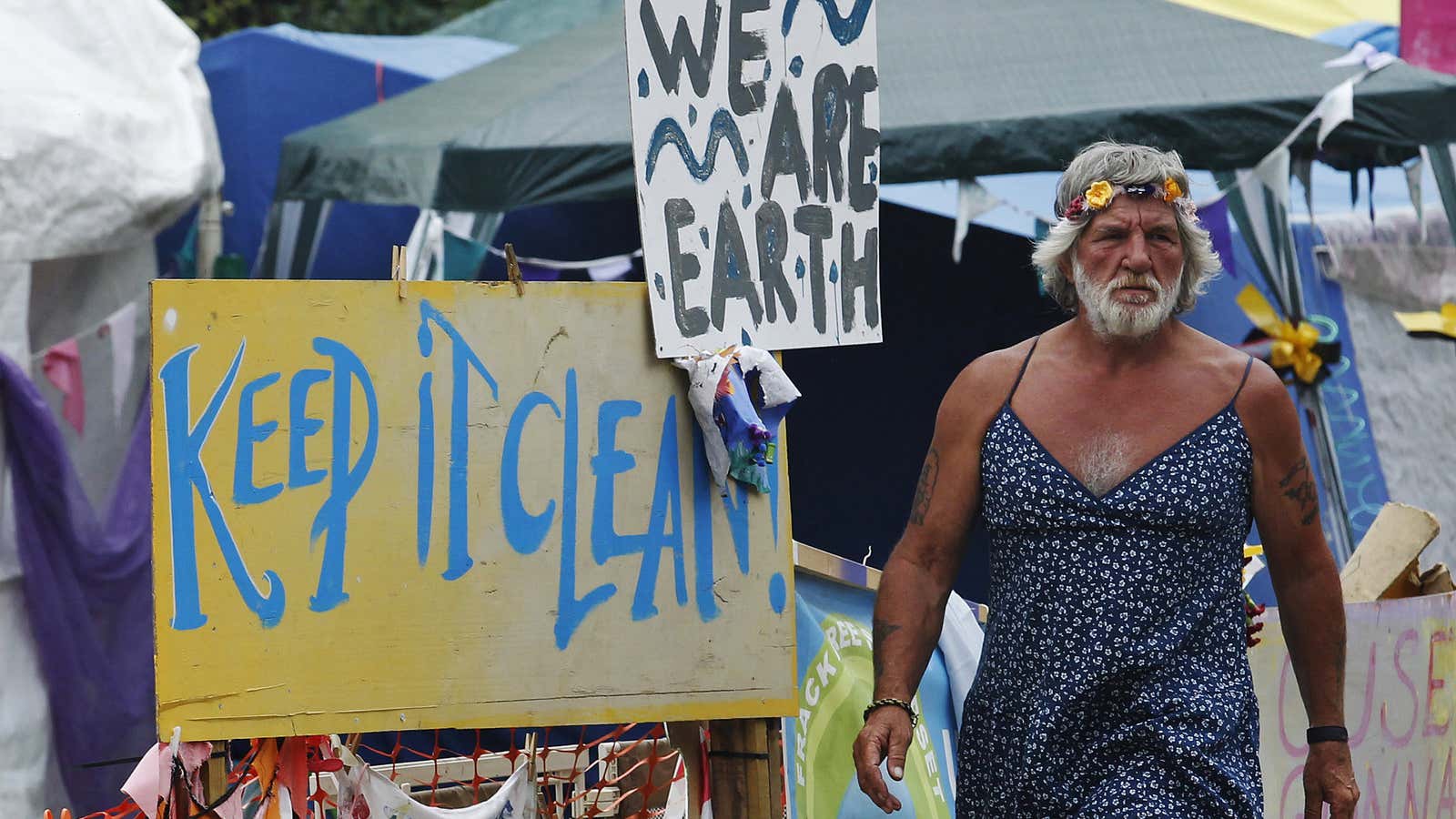For years, Russian president Vladimir Putin has bitterly alleged a foreign conspiracy to undermine his rule. Western-funded private organizations, he has said, were fomenting protests and supporting his opponents. Now it turns out that Putin himself may be funding protest groups in Europe.
In a London appearance on June 19, Anders Rasmussen, the secretary-general of NATO, accused Russia of secretly funding European non-governmental organizations (NGOs) that oppose hydraulic fracturing (or “fracking”), the method used to drill for shale gas, on environmental grounds. The objective, according to Rasmussen: to frustrate European countries’ efforts to wean themselves off Russian gas, which now comprises 30% of the European market.
“I have met allies who can report that Russia, as part of their sophisticated information and disinformation operations, engaged actively with so-called non-governmental organizations—environmental organizations working against shale gas—to maintain European dependence on imported Russian gas.” (Rasmussen’s remarks can be heard starting at 34:05 on this audio recording.)
To the extent that Rasmussen and his sources are right about Putin’s activities—some anti-fracking groups say he is paranoid—they are underscoring Moscow’s key pressure point in Europe, which is the natural gas umbilical cord connecting the two. The importance of this connection has been clear over the last few months in Europe’s reluctance to irritate Putin by directly challenging his annexation of Crimea and destabilization of eastern Ukraine.
One way for Europe to weaken Russia’s hold is to develop its own gas, a strategy that has led Poland, Bulgaria and other European countries to seek to develop shale gas resources. In the US, the shale gas boom has give the country a competitive advantage in certain industries such as chemicals that rely on gas as a feed stock. The practice of hydraulic fracturing, in which gas is extracted by fracturing deep rock with drills and a high-pressure water mixture, has been hobbled in many places by its own drilling sloppiness and tin-eared PR. Where there is opposition to the practice, it often seems to have sincere roots. Here is a 2012 protest in Sofia.
But Rasmussen’s assertion is that alongside the grassroots movement, there is something nefarious afoot:
The potential for Russia using energy supplies as a means of putting pressure on European nations is a matter of concern. No country should use supply and pricing terms as tools of coercion. We share a concern by some allies that Russia could try to obstruct possible projects on shale gas exploration in Europe in order to maintain Europe’s reliance on Russian gas.
As well as its strategic aims, such a Russian intelligence operation might also include an element of pay-back. In 2011, Putin accused the US of funding protests against his rule, and the following year he attacked Western-funded NGOs specifically. Two months ago, Putin accused Western NGOs of funding “nationalist and neo-Nazi groups” in Ukraine.
It’s true that Western NGOs have sought to pluralize Russian society and loosen Putin’s tight grip on power. Now, by apparently responding in kind, Putin is sending a message that he intends to remain a potent political and economic force in Europe for some time to come.
